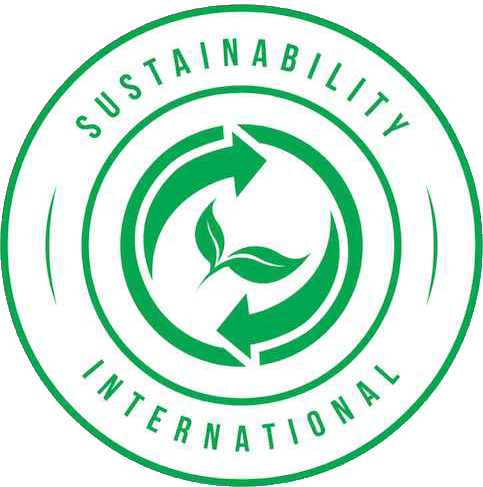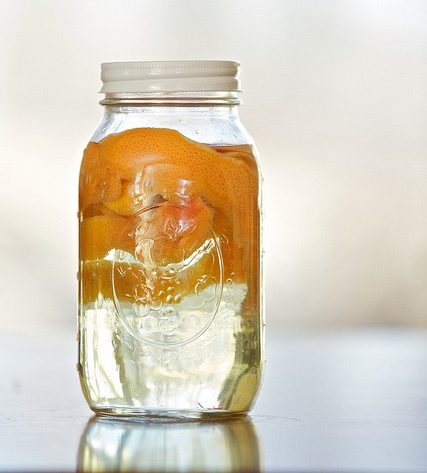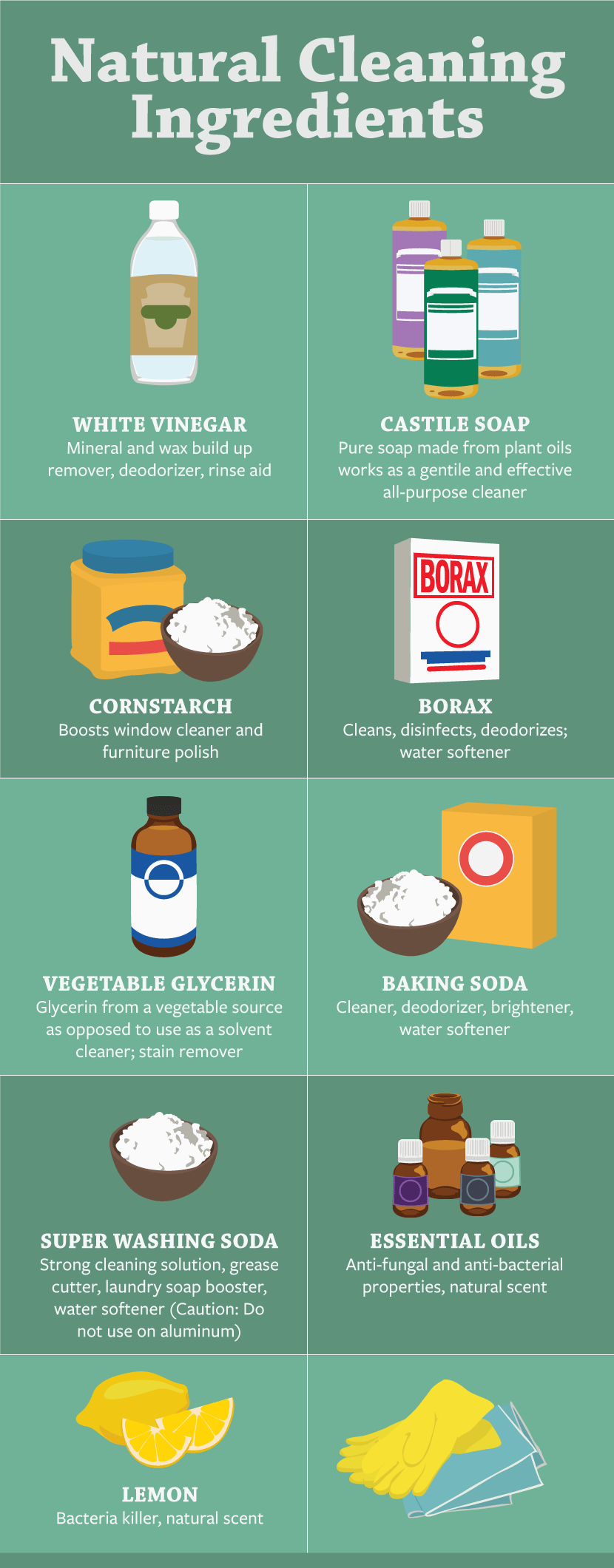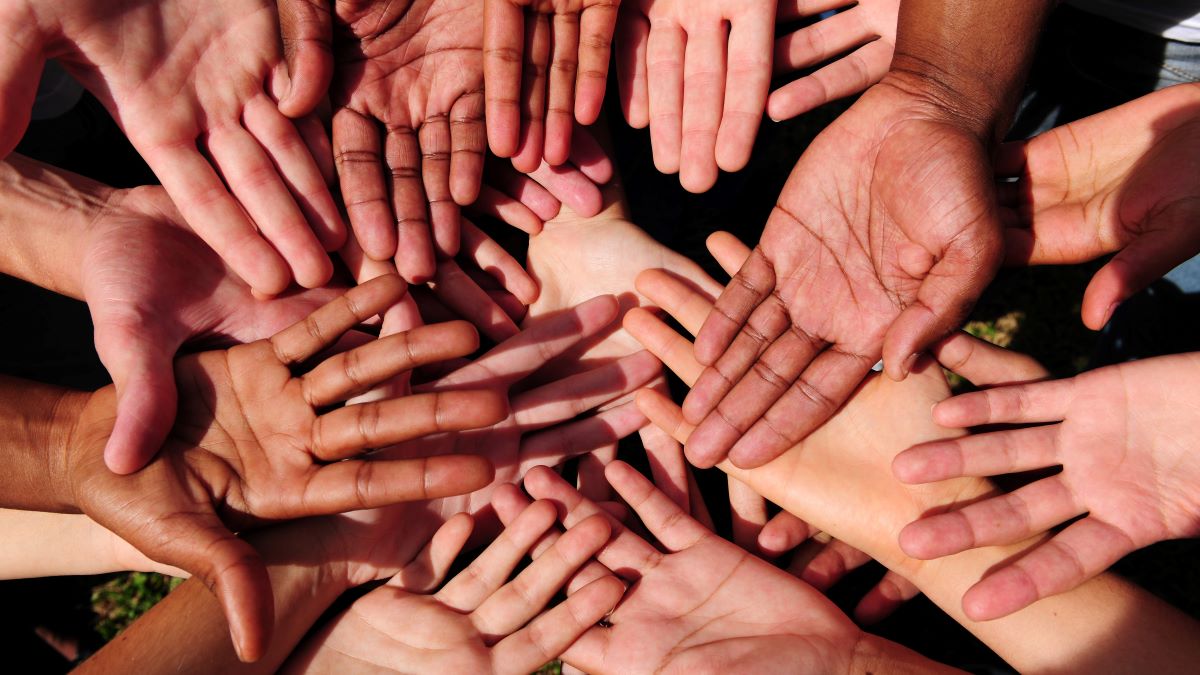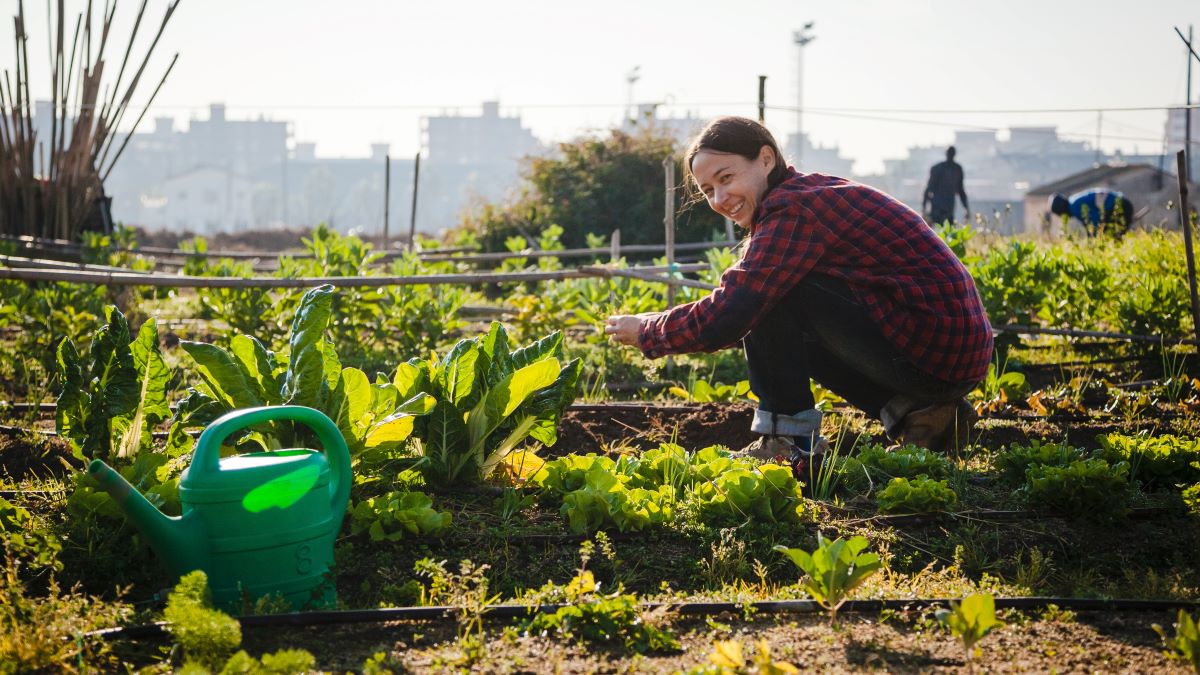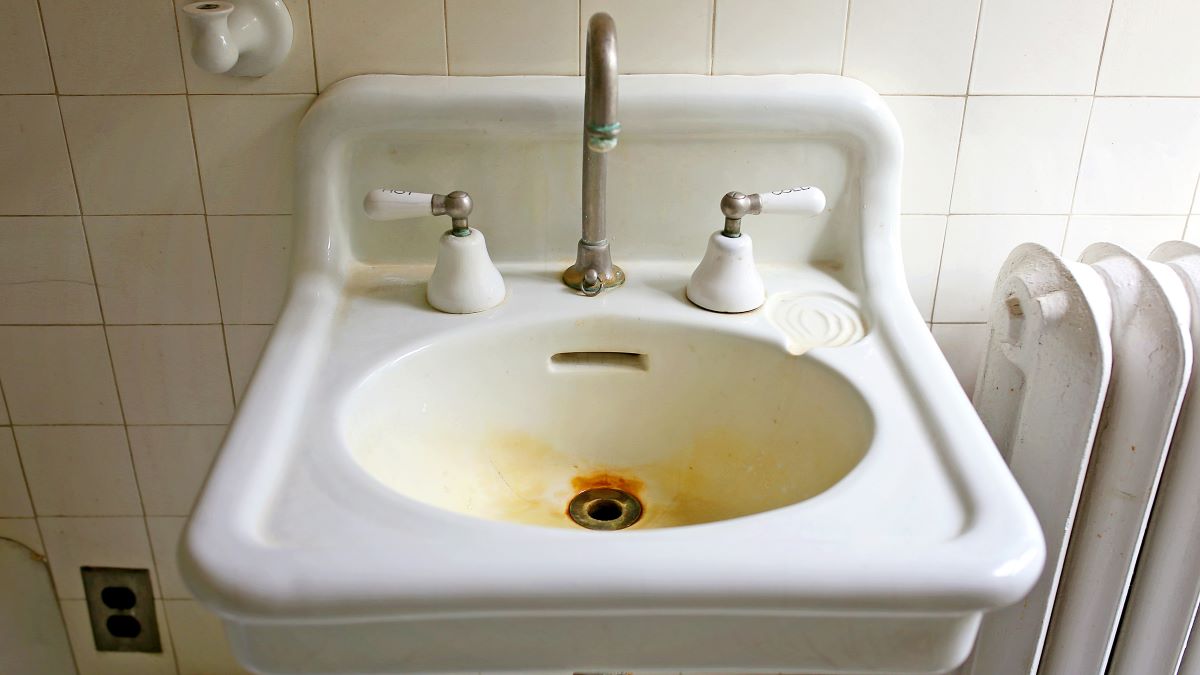One way to reduce the number of cleaning products you bring into your home is to clean with products you already have. People have been cleaning with household staples like vinegar, baking soda, and lemons (or lemon juice) for a long time, and believe it or not, these items are safe and effective. If you clean with these natural cleaners, you may buy less, spend less money, and have fewer harsh chemicals to worry about.
Note: This post contains affiliate links. If you make a purchase through one of these links, we receive a small commission that helps fund our Recycling Directory, the most comprehensive in North America.
Cleaning With Vinegar
Although vinegar is not registered as a disinfectant with the EPA, it will kill both salmonella and E.coli, two bacteria you’ll want to avoid. Consequently, white vinegar can be used to clean loads of things around your home. Here are just a few suggestions for what you can clean with vinegar.
In the kitchen:
- Clean your coffeemaker: Run the machine with equal parts water and vinegar. Halfway through the cycle, turn it off and let it sit for 1 hour. Then complete the cycle.
- Unclog a drain: Squirt some grease-fighting dish soap into the drain followed by at least 1 cup of boiling water. Next, pour in 1 cup of baking soda and then 1 cup of white vinegar. After the baking soda/vinegar mixture stops fizzing, wait an additional 5 minutes. Flush the drain with 2 cups of boiling water.
- Clean your microwave: Put 1 cup vinegar and 1 cup water in a microwave-safe bowl and microwave on high for about 10 minutes. Afterward, stains and dried food should be easy to wipe away. (Note: To make sure the liquid doesn’t overheat, place a wooden spoon in the vinegar/water mixture before you microwave it.)
- Make glasses sparkle: Soak cloudy glassware in a solution of equal parts white vinegar and water. After 30 minutes, rinse one glass with water. If it’s still cloudy, continue soaking for another 30 minutes. Rinse glasses with warm water and scrub dry with a clean cloth.
In the bathroom:
- Remove mineral deposits from a showerhead: Disconnect the showerhead. Using an old toothbrush, scrub it with vinegar to loosen debris. Use a toothpick to poke out stubborn deposits. Then soak the showerhead in a bowl of white vinegar overnight. In the morning, rinse the showerhead and reconnect it.
- Prevent mold in the shower: Spray vinegar on shower walls and curtains whenever they get wet.
Throughout the home:
- Clean windows: Mix 1 cup vinegar with 1 cup water. Spray solution on windows and wipe dry. If windows are very grimy, use full-strength, warm white vinegar. Spray it on windows and let it soak for a couple of minutes before rinsing and drying.
- Remove mold from walls: Spray vinegar on walls, let sit for 15 minutes, rinse and let dry.
- Clean spills on carpet: After blotting up as much liquid as you can, spray the stain with a solution of half vinegar and half water and let sit for 5-10 minutes. Blot with a clean towel.
Miscellaneous:
- Remove sticker residue: Soak a rag in vinegar and lay it across the sticky area. Let it sit for a few minutes, then wipe off the loosened residue.
- Remove skunk odor from a dog: If your dog has a run-in with a skunk, mix 2 parts water with 1 part apple cider vinegar. Wet your dog’s fur and wash one section at a time with the solution. Let the solution sit for at least 5 minutes, then rinse with water. You may need to repeat this process.
Cleaning With Baking Soda
Baking soda can do more than keep your fridge smelling fresh and aid with baking. Its odor absorbing properties are useful throughout the home. It is a mild abrasive that can remove stains without scratching. Additionally, baking soda is completely nontoxic. And unlike vinegar, it doesn’t have a strong smell. Try baking soda for some of these household cleaning tasks.
In the kitchen:
- Remove stains from coffee and tea mugs: Fill mugs with 1 part baking soda and 2 parts water and let sit overnight. Scrub and rinse in the morning.
- Remove odors from food containers: Rub a paste of baking soda and water over the inside of the container. Let it sit for a day or two and wash it off. Repeat, if necessary.
- Polish flatware: Make a paste with three parts baking soda and one part water. Rub onto the flatware with a clean cloth. Rinse with water and dry.
- Clean spills in the oven: Make a paste of 1/2 cup baking soda and 3 tablespoons water. Smear the paste over the spills avoiding the heating elements. Let it sit for 15-20 minutes, or for bad spills, overnight. Wipe up paste and loosened spill with damp dish cloth. Wipe oven interior with water or a 3:1 mixture of water and distilled vinegar. (Note: If you have a self-cleaning oven, don’t use this method.)
In the bathroom:
- Clean hairbrushes and combs: Remove any hair from the bristles, then immerse brushes and combs in a baking soda/water solution. Let them soak for at least 30 minutes, then rinse well in hot water.
Throughout the home:
- Remove odors from upholstered furniture: Simply sprinkle the fabric with baking soda and then vacuum.
- Erase crayon marks from white walls: Make a paste of equal parts baking soda and water, apply it to walls, let dry, and then wipe away. (Note: This method not recommended for colored walls.)
- Clean no-wax and tile floors: To achieve clean floors without scratching them, mix 1/2 cup baking soda in a bucket of warm water. Mop the floor and rinse.
- Freshen carpets and rugs: Sprinkle the carpet or rug with baking soda, let it sit for 15 minutes, and then vacuum.
Miscellaneous:
- Remove burnt food from a grill grate: Sprinkle baking soda on the grill grate and scrub with a brush. Rinse and wipe clean.
- Clean lawn furniture: Mix 1/2 cup baking soda with 1 quart of warm water. Wipe down furniture and rinse.
Cleaning With Lemon
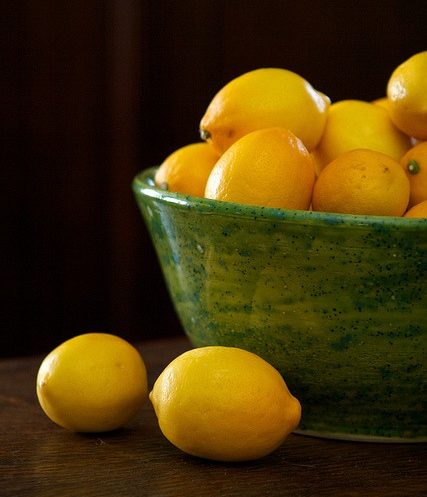
Image courtesy of Susy Morris
Have extra lemons or a bottle of lemon juice that you rarely use? There’s a reason that plenty of cleaning supplies have citrus in them; according to the DIY Network, lemons are a natural disinfectant and stain remover because of their acidity. As an added bonus, lemons will leave your house with a pleasant scent. Here are some common tasks where lemons (or bottled lemon juice) can lend you a hand.
In the kitchen:
- Clean laminate countertops and cutting boards: Squeeze the juice of a lemon onto the counter or cutting board. Rub the lemon into the stains and let sit until the stains disappear, then rinse. (Although lemons do have antibacterial properties, it’s advisable to seek out alternatives for cleaning surfaces that have been touched by things like raw meat to ensure you and your family members don’t get sick.)
- Remove stains from food storage containers: Squeeze the juice of a lemon into the containers, then add a little baking soda. Rub the mixture into the stains. Let sit overnight if necessary.
- Clean your microwave: Slice a lemon, put it in a bowl of water, and microwave for 45 seconds. This should make stains easier to wipe away and eliminate unpleasant odors.
- Control odor in your fridge: Store a half a lemon in your fridge, uncovered, to help eliminate unpleasant spells.
In the bathroom:
- Remove lime scale from faucets: Rub the fixtures with lemon juice and let sit overnight. Rinse in the morning.
- Tackle grout stains: Make a paste from lemon juice and 1 teaspoon of cream of tartar (a natural bleaching agent) and apply to the area with a toothbrush. Once the stain is gone, rinse with water.
Throughout the home:
- Clean glass: Mix 3 tablespoons of lemon juice with 1 cup of water in a spray bottle. Shake the mixture, spray it on the glass, and clean as usual.
- Polish furniture: Mix 1 teaspoon of lemon juice with 1 pint of vegetable or mineral oil. Rub onto furniture. Use a clean cloth to remove any excess oil.
Miscellaneous:
- Remove rust stains from clothes: Apply lemon juice to the stain, sprinkle with cream of tartar, and rub into the fabric. Let sit until the stain is gone and then wash in the washing machine.
Image source: Fix.com Blog
Feature image courtesy of Susy Morris. Originally published on June 15, 2016, this article was updated in October 2020.
The post Clean Your Whole House With Vinegar, Baking Soda, and Lemon appeared first on Earth 911.
